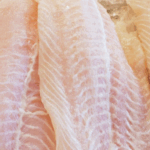UK restaurant insolvencies have jumped 64% from 856 in 2020/21 to 1,406 in the past year as
rising inflation and labour shortages drive restaurants out of business, new data from UHY Hacker Young shows.
Peter Kubik, partner at the national accountancy firm, says restaurants are facing major threats from spiralling inflation, decreased consumer spending and a shortage of labour.
The past quarter represents the largest number of restaurant insolvencies since the Insolvency Service began reporting monthly statistics during the Covid pandemic. 431 insolvencies of restaurants were registered in the three months to 31st May 2022 alone, a 29% increase on 334 in the previous quarter (see graph).
Insolvencies within the restaurant sector are even higher than in the wider hospitality industry, which has seen a 56% increase in company insolvencies in the past 12 rising from 1407 to 2193*.
Previous research by UHY Hacker Young recently found that restaurants have already seen their losses rise to more than £800 million in the past six months as they felt the effects of major restructuring programs following the pandemic.
Peter Kubik says: “Pressure is rising on the restaurant sector every day. More and more of them are shutting their doors as a result.
“Restaurants that only just managed to survive the pandemic thanks to government support are now facing fresh challenges in the form of rising inflation, a post-Brexit labour shortage and consumers who simply cannot afford to spend as much.”
“Smaller restaurants are suffering the most from a shortage of EU staff post-Brexit. Many are finding that they simply cannot hire enough staff to serve the number of covers they need to stay profitable. That’s one of the reasons for the raft of closures we’re seeing.”
Recent Posts
- The Cod’s Scallops closes Birmingham branch
- Norway’s frozen cod exports drop in first half of the year
- Marine scientists recommend quota cut for cod but increase for haddock in 2026
- Government sets timeline for Employment Rights Bill measures to come into effect
- National Fish & Chip Awards 2026 open with new category for menu innovation








